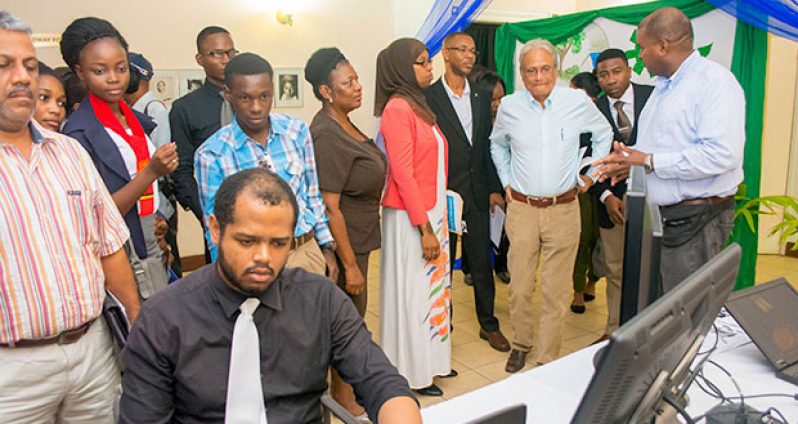It was hailed as promoting “green thinking” in the Caricom region and the launching of the Green Engineering syllabus by the Caribbean Examinations Council (CXC) for its Caribbean Advanced Proficiency Examination (CAPE) in Guyana was deemed a timely move by the region’s education oversight body.Accordingly , the stage is being set for the development of the green engineer sector as young academics have already indicated their intention of pursuing careers in the that field of study.
Green Engineering, according to the United States Environmental Protection Agency (EPA) is the design, commercialization, and use of processes and products in a way that minimizes pollution, promotes sustainability, and protects human health without sacrificing economic viability and efficiency.
CXC launched the syllabus in Guyana on July 27, 2016 at a forum which was attended by several educators and officials with vested interest in the greening of Guyana.
According to CXC, the green engineering course will enable students to acquire the knowledge, skills, values and attitudes needed to sustain the natural environment. It is aimed at enabling students to apply, scientific, technological, engineering and mathematical (STEM) principles to improve their environment at the local, regional and global levels.
“Green engineering is therefore an immediate import and application to Guyana,” Education Minister , Dr Rupert Roopnaraine said at the launching , adding that offering a course in green engineering is most timely from the standpoint of developing the manpower required by Guyana for the implementation of its policy of a green economy.
Providing a description of the aims of the syllabus, CXC noted that the course is aimed at enhancing the students’ awareness of the broad environmental, social and economic impact of engineering. It will create an understanding of how to incorporate the principles of sustainability into engineering practices while promoting awareness of the global challenges related to the environment and the impact of decisions on present and future generations.
Academically, it will ensure the student develop the capacity for critical thinking, creativity and innovation, problem solving, contextual learning, collaboration, emotional intelligence, entrepreneurial skills and technological competence through authentic learning experiences.
CXC noted too that the syllabus will integrate information, communication and technological (ICT) tools and skills.
After completing the syllabus and relevant examination, there are several professions which persons can pursue after mastering the requisite field of study. These include that of an air quality forecaster, chemical engineer, solar engineer, geoscientist, wetland specialist, petroleum engineer, geophysical engineer and a wind energy engineer. These are all fields which are applicable to Guyana’s “green sector.”
This year young academics have noted their plans to pursue studies in the green engineering field, including Guyana’s 2016 CSEC top student Fatima Karima who obtained 19 grade one passes at the 2016 edition of the examination.
Karim, in an interview with this publication , made her academic intentions known and she has already established her academic study pathway in her pursuit of becoming a petroleum engineer.
Berbice top student at the 2016 examination, Joshua Indarjit also has his eyes set on pursuing a career in the field of green engineering. Indarjit , who obtained 17 grade one passes at this year’s examination told this publication during an interview that he hopes to earn a scholarship to pursue his dream of becoming a physicist or a petroleum engineer.
The Green Engineering syllabus
SHARE THIS ARTICLE :
Facebook
Twitter
WhatsApp



.jpg)










